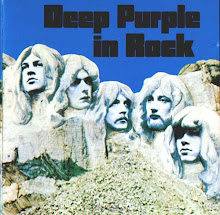The last ten years have seen a lot of changes in Beijing, and in its bar scene. I've reflected on these transformations a number of times before (for example, in considering the evolution of my own drinking habits, in reminiscing about the SARS summer, in categorizing the various expat 'types', and in satirizing the life-cycle of the 'hidden gem' bar). However, having just gone through my China Meltdown Moment and quit the country, possibly for good, this seems like an apt time for one last review of the major nightlife phenomena I witnessed during my time in The Jing.
This is the final part of a three-part series begun last Tuesday and Thursday.
The burgeoning of the music scene (and the bursting of the bubble?)
Back in the day.... we had
Get Lucky bar (which was
awful),
Nameless Highland (which was rather good, but remote and difficult to find),
River Bar (which was a bit small), and
What Bar (which was - is -
tiny). That was about it for live music venues. All except
What had succumbed to the
chai by the mid-Noughties.
Yugong Yishan forerunner
Loupe Chante was great, but lasted barely a year from its 2003 opening. But then, in fairly quick succession, we got the first
Yugong Yishan appearing in the Gongti car park,
13 Club and the (recently demised)
D-22 opening up almost side by side near Tsinghua University, and the
Tango/
Star Live club next to Ditan Park becoming the city's first purpose-built 'medium size' venue (early summer 2005;
Yugong and
Star might have been a bit earlier). The following year, music came to the hutongs, with
Jiangjinjiu opening on Bell Tower Square and
Jianghu off Nanluoguxiang; perhaps the greatest of all Beijing's cosy, divey music bars,
2 Kolegas, first opened its doors that year too, and the city's best music venue (at least for its sound)
Mao Live House came shortly afterwards.
Unfortunately, this brief flowering of the scene got squelched by the approach of the Beijing Olympics: all music festivals in the capital, and very nearly all outdoor performances of any kind, were blocked for nearly two years; foreign acts found it hard to get visas and permits; music bars suffered a lot of harassment about their licences. Not surprisingly, no-one else wanted to try and open a new music bar for a while. However, after three years or more of arrested development, 2010 saw another wave of expansion, with small venues like
Zui Yuefang,
VA Bar,
Hot Cat Club,
Tushuguan, and
Gulou 121 suddenly appearing, as well as new mid-size event venues
Mako Live and
The One. And now we've got
Temple and (
D-22 offspring)
XP as well, establishing the Gulou area as the centre of Beijing's music scene (
despite rather than because of the proximity of the new
Yugong Yishan, which has completely dominated the scene for visiting foreign acts for over 4 years now, but is - I'm sorry to say - a truly terrible venue).
Perhaps, though, as with the
proliferation of music festivals in the last few years, Beijing's and China's rock scene isn't yet strong enough to warrant this many outlets: most of the newer openings have failed to establish themselves very convincingly. I worry that this profusion of venues may actually be counter-productive, tending to foster ennui as we see the same rosters of bands appearing again and again all over the city.
The sudden escalation of cover charges (almost completely unknown 7 years ago, and rarely more than 30rmb until about 4 years ago, but now rarely less than 50rmb and often 80rmb or 100rmb) is also harming attendances (many of the visiting foreign acts at
Yugong are now failing to attract any Chinese punters - not because they haven't heard of the acts, but because they can't afford the tickets); and I'm not convinced that it's for the good of the bands either (anything that diminishes attendance is ultimately bad for the bands; they ought to be cannier about making money for themselves off merchandise sales, rather than demanding a percentage of the door take).
The slow development of a service ethic
Back in the early Noughties
The Den was the only bar that had a consistently good level of service and English-language skills among its waitresses (though less so with its barmen or doormen). In most of the other foreigner-targeted bars, many of the staff spoke no English at all, few spoke more than a handful of stumbling phrases, and service standards were... pretty wayward. Amazingly,
The Den is still leading the field 10 or 12 years on, but the rest of the scene has been catching up, particularly in the last 5 years: you can expect a functional level of English from almost all customer-facing staff in Western bars and restaurants now. The service standards, though, are still decidedly iffy. Staff training may have improved, staff motivation (and, hopefully, remuneration) may have improved; the available talent pool has expanded enormously (an awful lot of college graduates are now willing to start off in low-level F&B jobs; but the migrant workers with little education who study English for hours in their spare time to get a better job are the ones who really impress me); but a service
ethic is still largely absent, I fear. It takes a very long time to develop that kind of culture.
The decline of the taxi service
The number of subway stations has gone up four- or five-fold... but there's still very little coverage across the city centre, and the service starts grinding to a halt around 10.30pm. The buses run an hour or so later at night than they used to, but that still means there's nothing after 11pm. Late-night public transport in this city is non-existent: revellers who've strayed too far from home are utterly dependent on the taxi fleet. This was not a problem at all when there were 80,000 taxis and only 20,000 expats (and hardly any local Chinese who wanted to use cabs late at night). Now the cab fleet has shrunk to about 65,000 (last unofficial estimate I heard), while the number of expats is probably close to or above 100,000 (and huge numbers of young Chinese are now using the new subway lines to venture in from the far suburbs for a night out at the weekends). On top of this, taxi rates have been frozen by the government for the last six years (largely in order to manipulate the official cost-of-living index), with the result that drivers are now struggling to make a living - and hence ill-tempered, misanthropic, and, at busy times, frequently inclined to turn down rides, go 'off meter' to demand exorbitant ad hoc fares, or simply vent their latent xenophobia by spurning (or attempting to run over) any foreigners who try to flag them down. In the past year or two, it has become extraordinarily difficult to get a taxi at peak periods (5pm-7pm or 11pm-1am), and it is often pretty nigh impossible (for a foreigner) to get a taxi from the Sanlitun area at almost any time of the day. I sympathise with the cabbies' plight: bumping up the fares by 20% or 30% (and perhaps introducing tipping??) would be a fair and reasonable solution to the problem.
Oh my, this is far cry from the good old days. Until a few years ago, I'd almost never had to wait more than 15 seconds for a cab, at any time of day, in any part of the city (though, admittedly, I was never trying to get out of the CBD in the rush hour). Recent arrivals find that impossible to credit, but I assure you it is quite true.
I fear the current situation will exacerbate the Balkanization of the Beijing nightlife scene. It's just becoming way too much mafan to travel across town for a night out, with severe uncertainties about how you might get back. People are starting to restrict themselves to bars they can walk home from.
Fragmentation
Several new bar/restaurant areas have grown up across the city during the past 10 years: in Wudaokou, for the student crowd; in the Lido area, catering to the wealthier expats who live in the north-east, or venture in from Shunyi at the weekends on shopping expeditions; in Shuangjing, suddenly a favoured ghetto for the less well-off expat; in the heart of the city around Nanluoguxiang and Houhai (and now rapidly expanding north through the Gulou area and eastwards along the Fangjia and Wudaoying hutongs). People still talk about 'Sanlitun' as the city's nightlife centre, but it's shrunk to the single cramped thoroughfare of 'Back Street' - Sanlitun Houjie and the Tongli Building. And that's overrun with raucous youngsters, and starting to get a very bad reputation for fights and street crime. The Beijing bar scene today is much broader than that; as a whole, it is arguably much classier than it was 10 years ago, and certainly a lot more expensive; it's also become far more differentiated and geographically spread out. There has never again been - and probably never will be - a great mixing pot like the old Sanlitun South Street, which could bring together the entire expat population into one narrow space (if not all into exactly the same bars), regardless of age, income, or nationality. I rather miss that sometimes. But not as much as I miss a 10-kuai gin & tonic.







